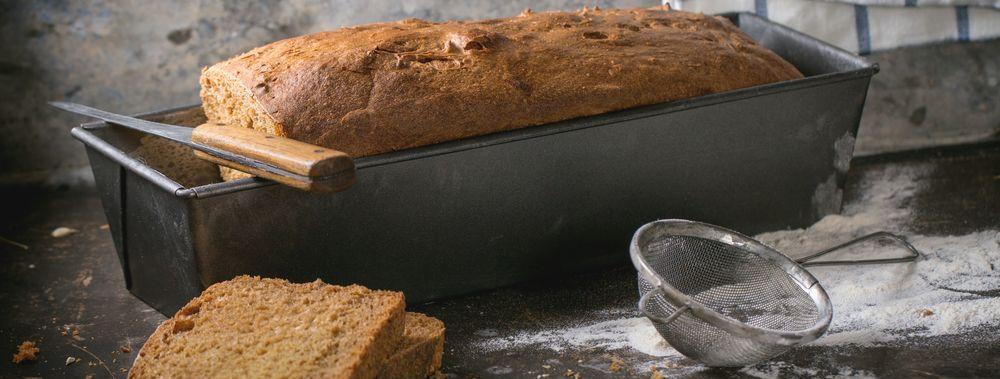Fibre is the term for non-digestible carbohydrates found in the diet. There are lots of different substances classed as dietary fibre and they are found in foods derived from plants. Some fibre is broken down by bacteria in the colon and some is passed in stools completely unchanged.
Why do we need fibre?
Fibre that is fermented by gut bacteria is broken down into smaller molecules that can be absorbed and used by the cells lining the gut, helping to keep the gut healthy. Many fermentable fibres have a gel-like texture which makes stools softer. Fibre that is not fermented by bacteria makes the stool bulkier.
Fibre feeds the good bacteria in your gut which can have many beneficial effects on your health, such as an improved immune system. The fibre found in oats has been shown to lower blood pressure and cholesterol, reducing risk of cardiovascular disease and stroke. Dietary fibre has been found to help people manage their diabetes and reduces the risk of developing type II diabetes.
A high fibre diet also helps to prevent constipation, diverticulitis and colorectal cancer. High fibre intake gives you softer, bulkier stools that move more quickly and easily through the colon and out of the body. This reduces the amount of time that any harmful substances that could cause inflammation or cancer are in contact with the cells lining the gut.
How much fibre do we need?
|
Adults |
30g per day |
|
2-4-year-old children |
15g per day |
|
Primary school age children |
20g per day |
|
Secondary school age children |
25g per day |
In the Uk the average fibre intake for adults is 18g per day so most people can benefit from eating a lot more fibre. When people first increase their fibre intake they may suffer from wind and bloating, but the body will soon adapt to the change in diet and these symptoms will subside. It is also important to drink plenty of water when you increase you fibre intake to pretend you from becoming dehydrated.
How can you add fibre to your diet?
Foods containing more than 3g of fibre per 100g can add fibre to your diet. The best sources are foods containing 6g fibre per 100g. In the UK foods labelled as ‘wholegrain’ only legally need to contain some wholegrains, so a bread labelled as wholegrain may contain mostly white flour with a small amount of wholegrain flour. The ingredients on food packaging are listed in order of greatest first, so if wholegrain or wholewheat is one of the first ingredients it is likely to be a good source of fibre.
The following foods are good sources of fibre;
Wholegrain staples – wholemeal bread, wholemeal pasta, whole wheat and bran cereals, oats, brown and wild rice, wholemeal crackers
Fruits – raspberries, blackberries, bananas, figs, passionfruit, avocado, kiwis, pears, strawberries,
Vegetables – broccoli, parsnips, artichoke, butternut squash, kale, carrots, Brussel sprouts, okra, sweet potato, baked potato with skin
Beans and legumes – peas, green beans, baked beans, kidney beans, chickpeas, soy beans, lentils, split peas, black beans, other types of beans (eg. haricot, white, adzuki, pinto, borlotti, black-eyed)
Nuts and seeds – peanuts, almonds, pistachios, dried coconut, pine nuts, hazelnuts, pecans, sesame seeds, sunflower seeds, chia seeds, flaxseed, pumpkin seeds
Fibre swaps
|
Low fibre |
High fibre |
|
White bread (2 slices) 1.7g fibre |
Wholemeal bread (2 slices) 4.2g fibre |
|
White rice (cooked weight 180g) 1.1g fibre |
Brown rice (cooked weight 180g) 4.5g fibre |
|
White spaghetti (cooked weight 180g) 3.1g fibre |
Wholemeal spaghetti (cooked weight 180g) 7.6g fibre |
|
Corn flakes (40g) 1g fibre |
Bran flakes (40g) 5.4g fibre |
Adding fibre
You can boost your fibre intake by adding extra fruits, vegetables, pulses, seeds and nuts to your meals. For example, sprinkling fruit, nuts and seeds on your cereal, porridge and yoghurt, and adding vegetables and pulses to pasta sauces, casseroles, curries and chillis. Leaving the skin on fruits and vegetables will also increase your fibre intake, because this is the part that usually contains the most fibre. The skins are safe to eat as long as they have been washed thoroughly.
For more information about fibre
- https://www.bda.uk.com/resource/fibre.html
- https://www.nutrition.org.uk/healthy-sustainable-diets/starchy-foods-sugar-and-fibre/fibre/

